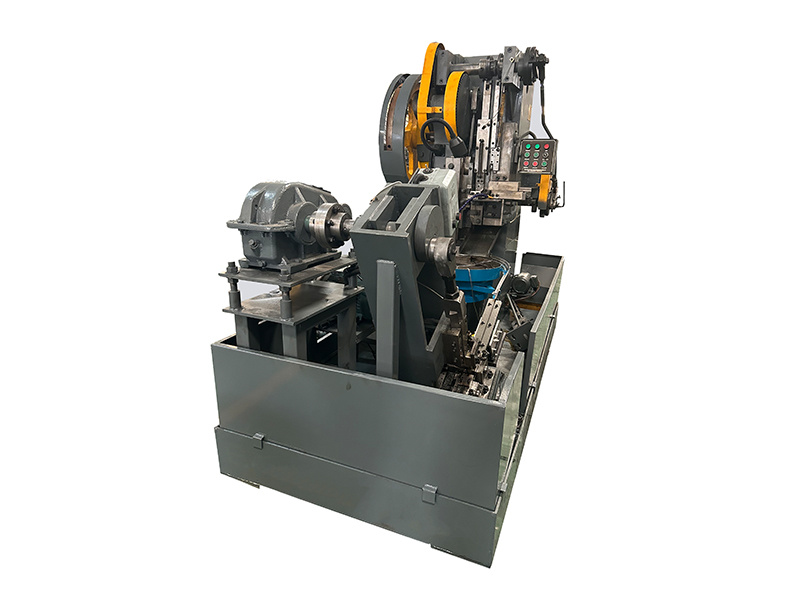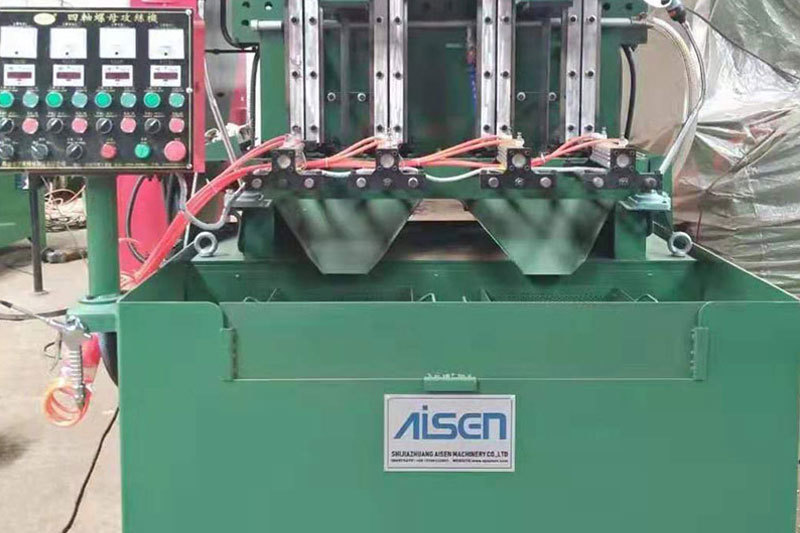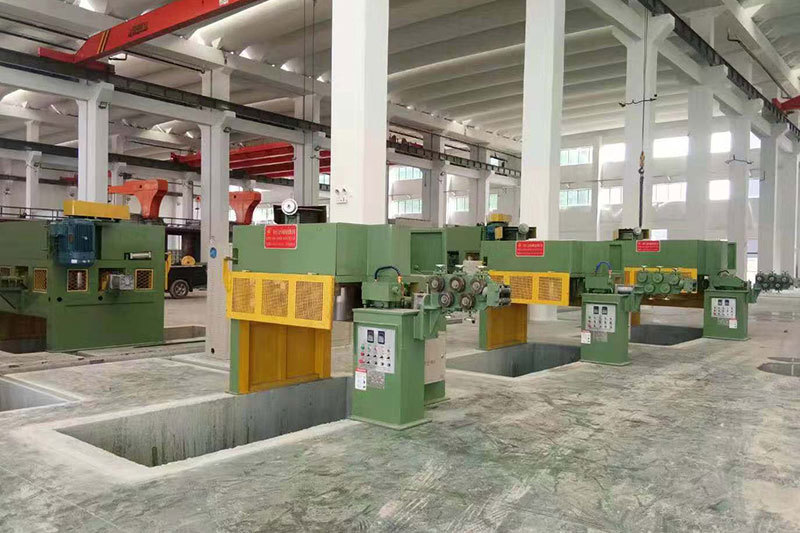Why Nut Hot Forging Machines Are Essential for Your Production Needs
Summary:
Why Nut Hot Forging Machines Are Essential for Your Production Needs
Table of Contents
Introduction to Nut Hot Forging Machines
What is Hot Forging?
Advantages of Nut Hot Forging Machines
Enhanced Strength and Durability
Cost-effectiveness
Versatility in Production
Key Components of Nut Hot Forging Machines
Applications of Nut Hot Forging Machines
Choosing

Why Nut Hot Forging Machines Are Essential for Your Production Needs
Table of Contents
- Introduction to Nut Hot Forging Machines
- What is Hot Forging?
- Advantages of Nut Hot Forging Machines
- Key Components of Nut Hot Forging Machines
- Applications of Nut Hot Forging Machines
- Choosing the Right Nut Hot Forging Machine
- Maintenance and Safety Considerations
- The Future of Hot Forging Technology
- Conclusion
- FAQs
Introduction to Nut Hot Forging Machines
In the dynamic landscape of manufacturing, the choice of machinery plays a pivotal role in determining efficiency, productivity, and product quality. Nut hot forging machines stand out as a crucial component in the production of fasteners, particularly nuts, due to their ability to produce high-strength components with intricate designs. As manufacturers strive for excellence, understanding the benefits and applications of these machines is essential for making informed investment decisions.
What is Hot Forging?
Hot forging is a manufacturing process that involves the shaping of metal at elevated temperatures, typically above the metal's recrystallization point. This technique allows for easier shaping and improved mechanical properties. The process typically involves placing a heated metal billet into a die, where it is then impacted or pressed into the desired shape. This method is particularly advantageous for producing complex geometries, which are essential in various industries such as automotive, aerospace, and construction.
Advantages of Nut Hot Forging Machines
Nut hot forging machines offer several compelling benefits that make them an optimal choice for manufacturers. Below, we delve into the key advantages that these machines provide.
Enhanced Strength and Durability
One of the standout features of nut hot forging machines is their ability to produce components with superior strength and durability. The hot forging process realigns the grain structure of the metal, resulting in increased toughness and resistance to wear and fatigue. This enhancement in mechanical properties is particularly vital for applications requiring high-performance fasteners.
Cost-effectiveness
Investing in nut hot forging machines can lead to significant long-term savings. While the initial purchase price may be considerable, the efficiency and speed of production can reduce labor costs and minimize material waste. Moreover, the durability of forged nuts means lower replacement rates, further contributing to overall cost savings.
Versatility in Production
Nut hot forging machines are highly versatile and can accommodate various materials, including steel, brass, and aluminum. This flexibility enables manufacturers to produce a wide range of products, from simple nuts to more complex fasteners, catering to diverse customer needs. Additionally, these machines can be adapted for different production scales, making them suitable for both small-scale operations and large industrial manufacturers.
Key Components of Nut Hot Forging Machines
Understanding the fundamental components of nut hot forging machines is vital for optimizing their use and maintenance. Here are the primary components involved:
Heating System
The heating system is responsible for elevating the temperature of the metal billets, ensuring that they reach the necessary forging temperatures. This system may utilize various heating methods, including electric induction or gas-fired furnaces, to achieve efficient and uniform heating.
Forging Die
The forging die is a critical component that shapes the heated metal into the desired form. Custom dies can be designed to produce specific fastener types, ensuring precision and consistency in the final products.
Pressing Mechanism
The pressing mechanism, whether hydraulic or mechanical, applies force to the heated billets within the forging die. This component is crucial for shaping the metal accurately, enabling high precision and repeatability in production.
Applications of Nut Hot Forging Machines
Nut hot forging machines find applications across various industries, demonstrating their versatility and importance. Some notable applications include:
Automotive Industry
In the automotive sector, forged nuts are essential for assembling vehicles, providing reliability and safety. Hot forged fasteners are used in critical components such as engines, chassis, and suspension systems.
Construction Industry
The construction industry relies heavily on strong, durable fasteners for structural integrity. Nut hot forging machines produce high-quality nuts that meet stringent industry standards for safety and performance in construction applications.
Aerospace Industry
In aerospace manufacturing, where safety is paramount, hot forged fasteners offer unmatched strength-to-weight ratios and resistance to extreme conditions. These characteristics make them indispensable for aircraft assembly and maintenance.
Choosing the Right Nut Hot Forging Machine
Selecting the appropriate nut hot forging machine requires careful consideration of several factors:
Production Volume
Evaluate the expected production volume to determine the machine capacity required. High-volume operations may necessitate larger, more automated systems, while smaller businesses can benefit from compact models.
Material Flexibility
Consider the range of materials you plan to work with. A versatile machine that can handle various metal types will provide greater operational flexibility and adaptability.
Budget Considerations
Establish a budget that accounts for both initial investment and ongoing operational costs. While high-quality machines may come with higher upfront costs, their durability and efficiency can lead to long-term savings.
Maintenance and Safety Considerations
To ensure optimal performance and longevity of your nut hot forging machine, regular maintenance is essential. Here are some key practices:
Routine Maintenance
Implement a schedule for routine inspections and maintenance to keep the machine in peak condition. This includes checking the heating system, pressing mechanism, and forging dies for wear and damage.
Safety Protocols
Establish safety protocols to protect operators and staff. This includes training on machine operation, implementing safety guards, and ensuring proper personal protective equipment (PPE) is worn during operation.
The Future of Hot Forging Technology
As technology continues to evolve, so does the landscape of hot forging. Innovations in automation, artificial intelligence, and material science are shaping the future of nut hot forging machines. These advancements promise improved efficiency, greater precision, and reduced environmental impact, making it an exciting time for manufacturers pursuing modernization.
Conclusion
Nut hot forging machines are indispensable tools for manufacturers seeking to enhance their production capabilities. With their numerous advantages, including increased strength, cost-effectiveness, and versatility, these machines offer a compelling case for investment. As the manufacturing landscape continues to evolve, adopting modern forging technology will be crucial for staying competitive in the ever-changing marketplace.
FAQs
1. What materials can be used with nut hot forging machines?
Nut hot forging machines can work with various materials, including steel, aluminum, and brass, providing flexibility for different applications.
2. How does hot forging improve strength in fasteners?
Hot forging realigns the grain structure of the metal, enhancing its mechanical properties, resulting in stronger and more durable fasteners.
3. What are the typical applications of hot forged nuts?
Hot forged nuts are widely used in automotive, aerospace, and construction industries, where strength and reliability are critical.
4. How do I maintain my nut hot forging machine?
Regular maintenance includes routine inspections, cleaning, and checking for wear on components, along with implementing safety protocols.
5. What are the advantages of choosing hot forging over cold forging?
Hot forging allows for easier shaping of materials, improved mechanical properties, and the ability to produce complex geometries, making it preferable for many applications.
Latest News
AISEN Four axis nut tapping machine ready for shipment to Russia
Four axis nut tapping machine for DIN934 M8,M10 Standard hex nut is ready for shipping to Russia by land transportation.
AISEN machinery inverted wire drawing machine
We hope to cooperate with more customers for mutual development and benefits. You are welcome to contact us









